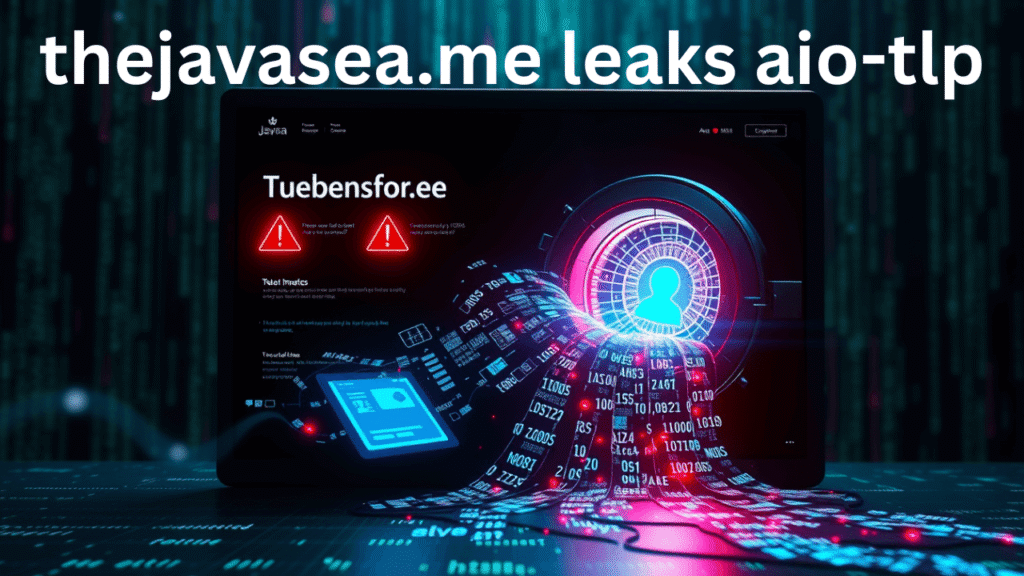Alright, folks, let’s dive into something that’s been making waves in the cybersecurity world lately: the leaks connected to thejavasea.me and this thing called Aio-TLP. If you haven’t heard of them yet, no worries — I’ll break it down for you in a way that makes sense. These leaks are a big deal because they touch on how sensitive info ends up out in the open, sometimes when it really shouldn’t. So, buckle up, and let’s explore what’s going on, why it matters, and how you can keep yourself safe.
Table of Contents
- What Exactly Is thejavasea.me?
- Breaking Down Aio-TLP: The All-in-One Traffic Light Protocol
- How Do These Leaks Even Happen?
- Why Should You Care About thejavasea.me Leaks?
- Protect Yourself: Tips to Stay Safe in a Leaky World
- Wrapping It Up: Why This Matters More Than Ever
- FAQs About thejavasea.me and Aio-TLP
What Exactly Is thejavasea.me?
First off, thejavasea.me is a website that’s been under scrutiny recently for leaking sensitive info. Now, it’s not your typical site — it’s known mostly for hosting data that’s been leaked from various sources. Think personal details, business secrets, and other confidential stuff that definitely wasn’t meant for public eyes. The exact nature of the site’s mission isn’t crystal clear, but what’s obvious is that it’s become a hub for data that’s gone rogue.
Breaking Down Aio-TLP: The All-in-One Traffic Light Protocol
So, what’s this Aio-TLP business all about? The acronym stands for All-in-One Traffic Light Protocol. Basically, it’s a color-coded system cybersecurity folks use to label how sensitive information is, and who it’s safe to share it with. Picture a traffic light, but for data:
- Red means super sensitive info — only a very tight circle of people should see it.
- Amber is still sensitive but can be shared with certain trusted parties.
- Green means it’s okay to share within a larger group, but not publicly.
- White is info that’s safe to share freely with the public.
The leaks tied to thejavasea.me reportedly involve data that was marked under these Aio-TLP classifications, suggesting stuff meant to stay under wraps might have been spilled outside the trusted groups.
Also Read
How Do These Leaks Even Happen?

Leaks like this don’t just appear out of nowhere. There are several ways sensitive information slips through the cracks:
- Hacking: The classic scenario — cybercriminals break into systems to steal data.
- Phishing: Attackers trick people into handing over passwords or info by pretending to be someone they’re not.
- Insider Threats: Sometimes the leak comes from within — an employee or associate might share info accidentally or on purpose.
- Weak Security Practices: Think outdated software, easy passwords, or no encryption — all invite trouble.
Why Should You Care About thejavasea.me Leaks?
Leaks like these aren’t just a headline — they have real consequences.
Personal Risks
If your personal info ends up in one of these leaks, you could face identity theft, financial headaches, or just plain stress. Data like your social security number, bank info, or home address in the wrong hands is a big problem.
Business Fallout
For companies, these leaks can be devastating. Leaked data might give competitors an edge, lead to costly lawsuits, or erode customer trust. Fixing the damage isn’t cheap, and the reputational harm can last for years.
Bigger Cybersecurity Threats
When sensitive info is leaked, it’s like waving a red flag to cybercriminals. It reveals weaknesses in systems and can lead to even more attacks down the line. Basically, it opens the door for hackers to cause even more havoc.
Protect Yourself: Tips to Stay Safe in a Leaky World
Okay, enough doom and gloom. Here’s what you can do to lock down your info and keep hackers at bay.
- Use Strong Passwords: Mix it up with letters, numbers, and special characters. Ditch the birthdays and “password123” stuff.
- Enable Two-Factor Authentication (2FA): This adds a second checkpoint to your login process — even if someone cracks your password, they’ll need that extra code.
- Stay Updated: Cyber threats change fast. Keeping up with the latest news and advice helps you avoid new scams.
- Monitor Your Accounts: Check your bank, email, and other important accounts regularly for anything weird.
- Install Security Software: Good antivirus and anti-malware tools can spot and block attacks before they hit.
Wrapping It Up: Why This Matters More Than Ever
The story behind thejavasea.me leaks and the Aio-TLP system shines a spotlight on just how tricky the digital world can be. Leaks aren’t just a tech problem — they impact real people, real businesses, and the trust we put in online systems every day. But by understanding what’s going on and taking simple but smart steps, you can put yourself in a better position to avoid becoming a victim.
FAQs About thejavasea.me and Aio-TLP
What is thejavasea.me?
It’s a website known for hosting leaked sensitive information, including personal and business data.
What does Aio-TLP mean?
Aio-TLP stands for All-in-One Traffic Light Protocol, a system used to classify how sensitive shared information is in cybersecurity circles.
How do leaks usually happen?
Leaks often occur due to hacking, phishing scams, insiders sharing info, or poor security habits.
What are the risks of data leaks?
Leaks can cause identity theft, financial loss, legal troubles for businesses, and increase the chance of more cyber attacks.
How can I protect myself from data leaks?
Use strong passwords, enable two-factor authentication, stay informed on cyber threats, keep an eye on your accounts, and use reliable security software.
Learn about your digital security options starting with 8007613372: Your Unexpected Connection to Support And Security.




